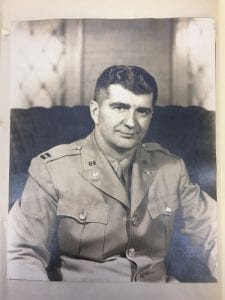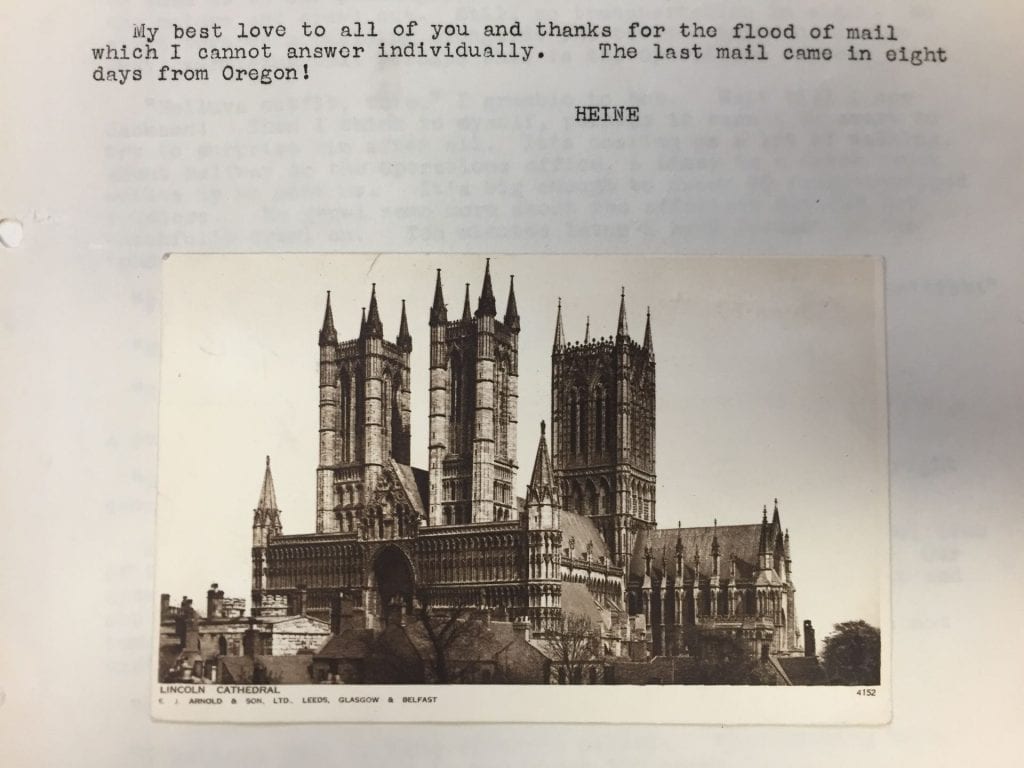New Finding Aid | William Henry Fluhrer papers
Special Collections and University Archives is pleased to announce a new finding aid published for the William Henry Fluhrer papers (Ax 035). The finding aid is available on Archives West.

This collection consists of scrapbook contents from Fluhrers service in WWII, with most of the material dating from 1944-1945. The majority of the scrapbook contents are of letters Fluhrer wrote home to his wife Margaret. There are a number of photographs, drawings, and newspaper clippings relating to Fluhrer and his service. The collection also contains 16mm film reels of footage Fluhrer shot during his time overseas.

Notes from processing:
The letters Fluhrer wrote home present unique perspective and insight into who Fluhrer was and his views on war, service, and the impact these had on the people and places caught up in the midst of the conflict. A theme that stood out in his letters was the lasting impact this war would have on the world, as he makes the case that isolationism is no longer a viable position moving forward. Despite the seriousness of the situation he was in, Fluhrer still displays a humorous and optimistic quality in his letters, remarking that this will not take the fun out of politics, but will instead present a new question of what we as a nation want to do about the fact that we can no longer ignore the rest of the world.
–Emily Haskins, Special Collections Intern

